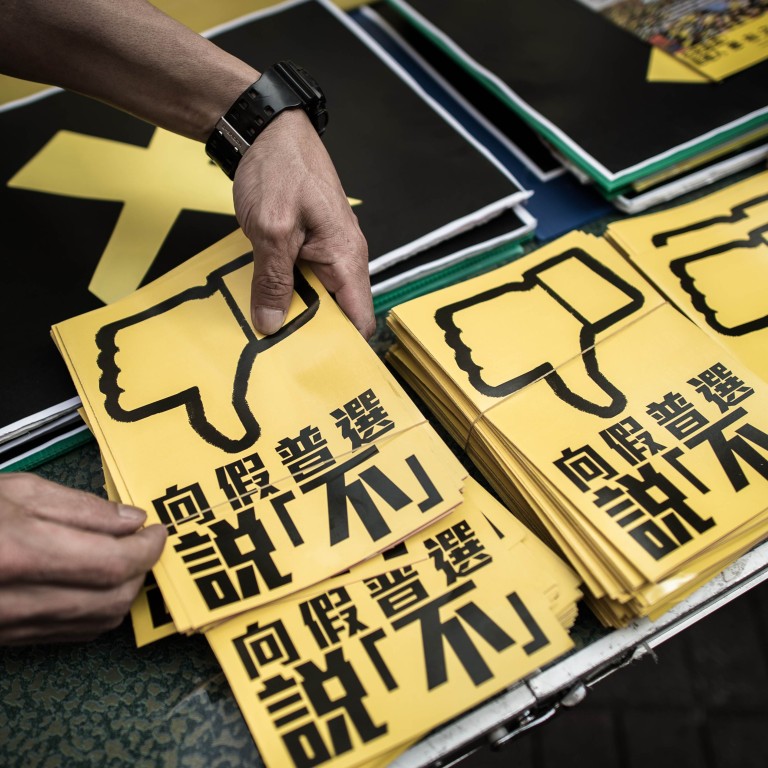
Pan-democrats must play no part in perpetuating Hong Kong's small-circle Election Committee
Frank Ching says a vote against the government's electoral reform proposal will mean, unfortunately, a vote for the Election Committee
Hong Kong's pan-democratic legislators are in a dilemma. For ages, they have denounced the Election Committee for holding "small-circle elections" to choose the chief executive and called for an end to such an undemocratic practice. But now, they are vowing to perpetuate the Election Committee by promising to veto Beijing's decision on universal suffrage in 2017.
To be sure, the National People's Congress Standing Committee decision will not result in a fully democratic process, but a veto of that proposal is a vote for the Election Committee. There is no other way to put it.
It also blocks reform of the Legislative Council.
The question is not over the voting process, since all five million people in Hong Kong will be able to vote. The question is how candidates will be chosen.
The founding chairman of the Democratic Party, Martin Lee Chu-ming, proposed in 2013 that the Election Committee be transformed into the nominating committee, which would produce five candidates. Lee was sure one of the candidates would be a democrat. Under pressure, he withdrew his proposal the next day.
The key difference between Lee's proposal and Beijing's is that instead of five, there will be two or, at most, three candidates. How likely is it that one of them will be a democrat?
The Hong Kong government has introduced a new wrinkle by proposing a two-stage process, with up to 10 candidates in the "recommendation" stage with a low threshold. Under that plan, at least five candidates can enter the race and one or two democrats can easily qualify.
Much would then depend on the campaign waged by these candidates, which will presumably include televised debates and meetings with the public and the media, with opinion polls reflecting their standing. If, say, a democrat tops the opinion polls, it seems highly unlikely that she or he would be excluded from the final two or three candidates. Of course, if the democrats do badly, then it would be difficult to argue that they should be nominated.
But if a democrat consistently leads in the opinion polls and is not nominated, it would cast serious doubt on the nominating committee's integrity. No doubt, there would be a huge outcry for change.
That would certainly be understandable after Beijing's proposal had been tried and found wanting. But voting for the status quo now and clamouring for change in five or 10 years is highly unlikely to succeed. If the government package is vetoed this time around, all it means is that Beijing will wait five, 10 years or even longer before reintroducing reform.
Passage of the government's political reform package is a step forward. Putting the vote in the hands of five million people is superior to keeping it in 1,200 pairs of hands. The proposed system needs to be put to the test before it is condemned. Chinese officials have indicated that there can be further reforms. The nominating committee should be more "broadly representative", as the Basic Law puts it. Voting for the reform package is the right thing to do.

